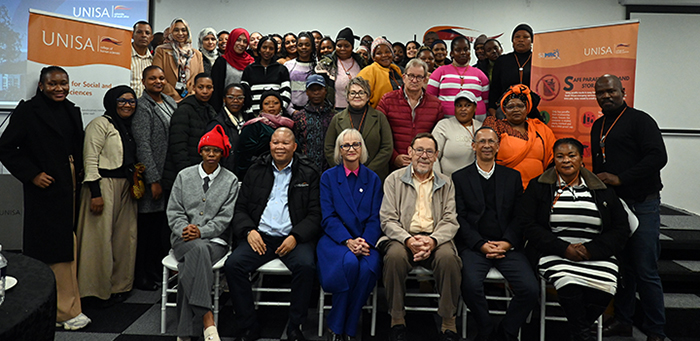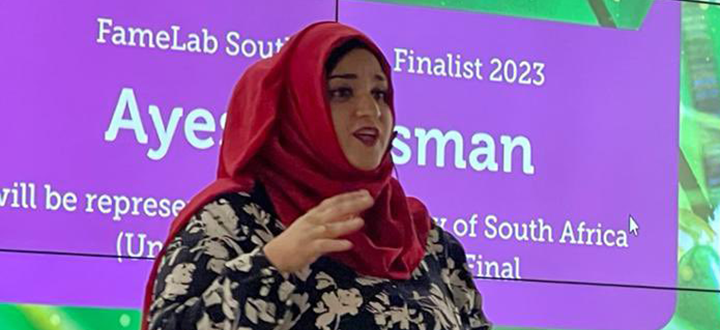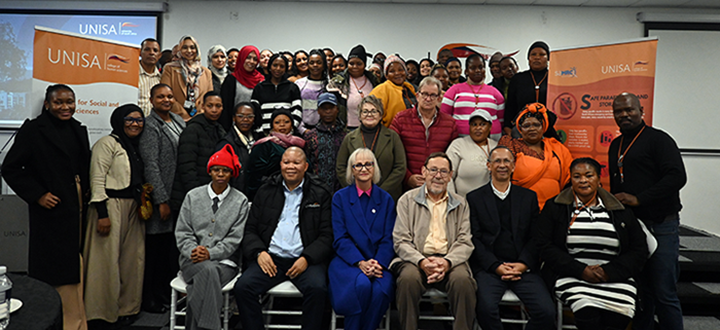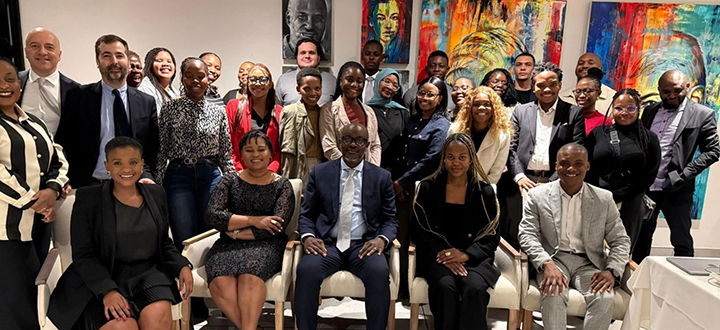College of Human Sciences
Why South Africans need safer energy alternatives

Attendees at the No Paraffin! Campaign seminar
The Unisa Institute for Social and Health Sciences (ISHS) recently hosted a No Paraffin! Campaign seminar to raise awareness about the dangers of using paraffin in South African households. The seminar brought together academics, community members and survivors of paraffin-related accidents to share insights, research findings and practical solutions.
Every year, more than 100 000 people suffer burn injuries in South Africa, with an estimated 2 400 lives lost. Behind these statistics lies a common household fuel: paraffin. Once considered affordable and convenient, paraffin is now at the centre of a public health crisis. Research indicates that paraffin fires are responsible for 53% of burn injuries, while candles account for nearly 30%.
Despite the country’s progress in electrification, paraffin remains widely used because it is cheap, portable and accessible. However, as the No Paraffin! Campaign warns, its true cost is measured in lives, compromised health and environmental damage.
Launched in 2021, the No Paraffin! Campaign calls for
- the accelerated transition to safe, affordable and modern energy for all households.
- a gradual phase-out of paraffin use.
- stronger protections for vulnerable users.
- the increased adoption of sustainable energy alternatives.
Prof Ashley Van Niekerk (ISHS) opened the academic presentations by outlining the campaign’s origins and presenting alarming statistics on paraffin-related injuries. He identified poverty as a major barrier that prevents households from switching to safer energy sources.
Keynote speaker Prof Harold Annegarn (Environmental Sciences and Management, North-West University) discussed pathways toward a 2030 paraffin phase-out, introducing alternative energy options such as liquid fuels, solid fuels and clean cooking fuels, including fuelwood, biomass pellets and LPG. Through practical demonstrations – including a pellet stove – he showcased how these alternatives can be durable, safe and efficient.
Dr David Kimemia (ISHS) then delivered a presentation on South Africa’s Household Energy Transition, identifying energy poverty as a central challenge, worsened by issues such as load-shedding and a lack of affordable clean energy. His message was clear: South Africa must prioritise energisation over electrification, with greater investment in education and income generation.
Dr Kholofelo Moeng (Development Studies, Unisa) expanded on the systemic nature of energy poverty, explaining that paraffin’s affordability and versatility continue to make it a common household fuel despite its dangers. She also introduced the Energy Transition Ecosystem, providing provincial statistics on household cooking fuel choices.
From a community perspective, Noxolo Dumani (ISHS) spoke about energy-impoverished communities and their struggles. She highlighted barriers to adopting renewable solutions, including affordability, limited awareness and entrenched unsafe practices.
Annegarn later returned to demonstrate protective adjustments to paraffin stoves and shared recommendations developed by SABS Technical Committee TC-1054.
One of the most powerful moments came during the open discussion, when survivors of paraffin-related fires shared their stories. Luvo Balekile, from the Lwandle community in the Western Cape, recounted how one man’s use of a paraffin stove, because he could not afford electricity, led to a shack fire that destroyed 216 homes. He urged that such seminars be taken into townships, where paraffin use is most prevalent, so that communities can be directly educated about fuel safety.
The event concluded with a vote of thanks by Motale Nkgoang, Western Cape Regional Director, who expressed appreciation to the keynote speakers, organisers and attendees. Tokens of gratitude were also presented to the speakers.
The No Paraffin! Campaign continues to shine a light on the urgent need for cleaner, safer and more sustainable energy solutions for all South Africans.
* By Thandeka Mtyali, Intern: Communication and Marketing, Western Cape Region
Publish date: 2025-10-23 00:00:00.0


 From personal struggles to national reach
From personal struggles to national reach
 Why South Africans need safer energy alternatives
Why South Africans need safer energy alternatives
 Reimagining democracy through the eyes of the youth
Reimagining democracy through the eyes of the youth
 Unisan earns PhD with groundbreaking study on township consumer behaviour
Unisan earns PhD with groundbreaking study on township consumer behaviour
 Unisa inspires learners to dream big during career day
Unisa inspires learners to dream big during career day